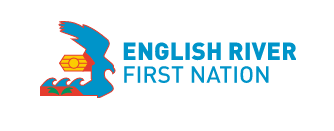Representatives from English River First Nation believe they have found 83 potential unmarked graves while searching the site of the former Beauval Indian Residential School (IRS).
The First Nation began the search with Ground Penetrating Radar (GPR) in August 2021. On Thursday, they said the GPR shows several positive hits or Areas of Interest (AOI) at the site.
“It’s with sincere sadness that we announce that upon further investigation and study of these possible unmarked grave sites, most of them were labelled as ‘child-sized’ or ‘sub-adult’ in length,” English River First Nation Chief Jenny Wolverine said in a press release. “Further to this, 12 of these unmarked graves average only 2.5 feet in length, which is consistent with the burial of infants and in line with several witness accounts of infant births and subsequent deaths but survivors of this school.”
Wolverine said a special council of community members, elders, and survivors are providing guidance on the next stage of the project. They’ve asked for privacy over the next two weeks.
Additional sites have been identified as possible unmarked graves. The First Nation plans to expand their GPR efforts to those locations over the next year.
Former Beauval IRS records have been made available to the National Centre of Truth and Reconciliation, including records handwritten in French. Those records are currently being translated. The entire process will continue over the next two to three years, and Wolverine hopes they will eventually help identify the occupants of any unmarked graves.
The English River First Nation Elders Council released a statement expressing sympathy for survivors and offering prayers for everyone affected by the findings at the Beauval IRS site.
“We are shocked, but not surprised by these findings,” reads the statement. “Horrifying and grueling stories of abuse from survivors have been circulating in our communities for generations. We can confirm that we have heard heart-wrenching survivor accounts of physical, sexual, emotional, and spiritual abuse.”
In the statement, the Elders council said they hope the discovery will allow the final resting places to be marked and cared for. They also hope it will lead to healing for survivors, followed by true reconciliation.
The Beauval IRS was originally located in Île-à-la-Crosse, but moved to Lac la Plonge in 1906. The local Roman Catholic Mission ran the residential school until the federal government took over in 1969.
According to Shattering the Silence, a University of Regina project that looked at the history of residential schools, there was one former staff member and one former teacher convicted of sexual abusing students.
Former dorm supervisor Paul Leroux was convicted of repeatedly abusing boys as young as nine-years-old when he worked at the school in the 1960s. Former principal Norbert Dufault was sentenced to two years in jail for sexually assaulting eight young girls in the 1950s and 60s.
Elders and leaders have scheduled a press conference for Tuesday, Aug. 29 in Saskatoon to discuss the findings.
The English River First Nation is located roughly 400 km northwest of Prince Albert.
Anyone who is a former residential school residents in distress or someone who has been affected by the residential school system and is in distress, can contact the 24-hour Indian Residential School Crisis Line at 1-866-925-4419, or the Indian Residential School Survivors Society toll-free line at 1-800-721-0066.


